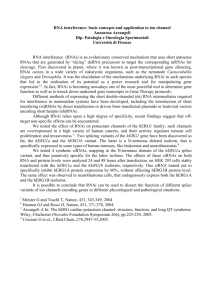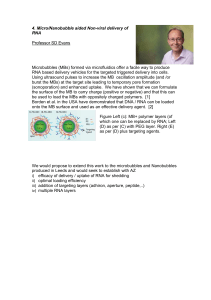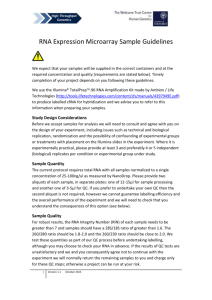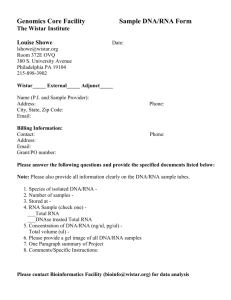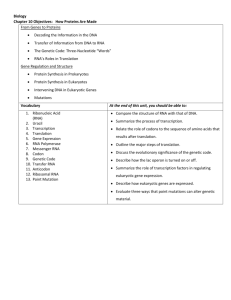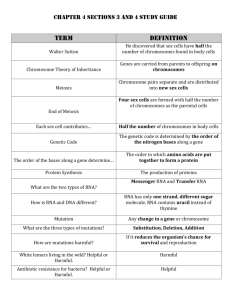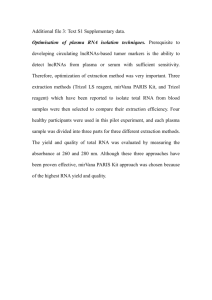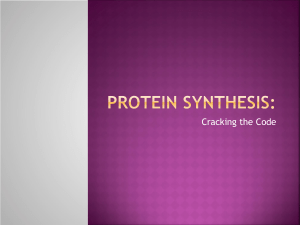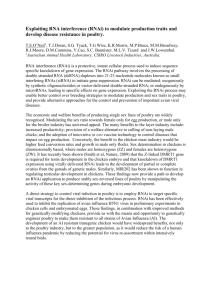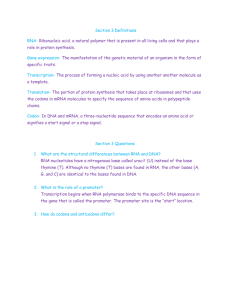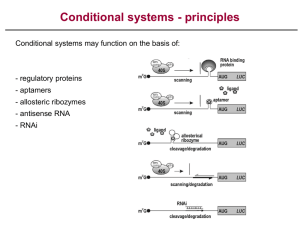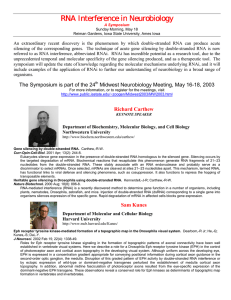RNAi Slicing, dicing and serving your cells
advertisement
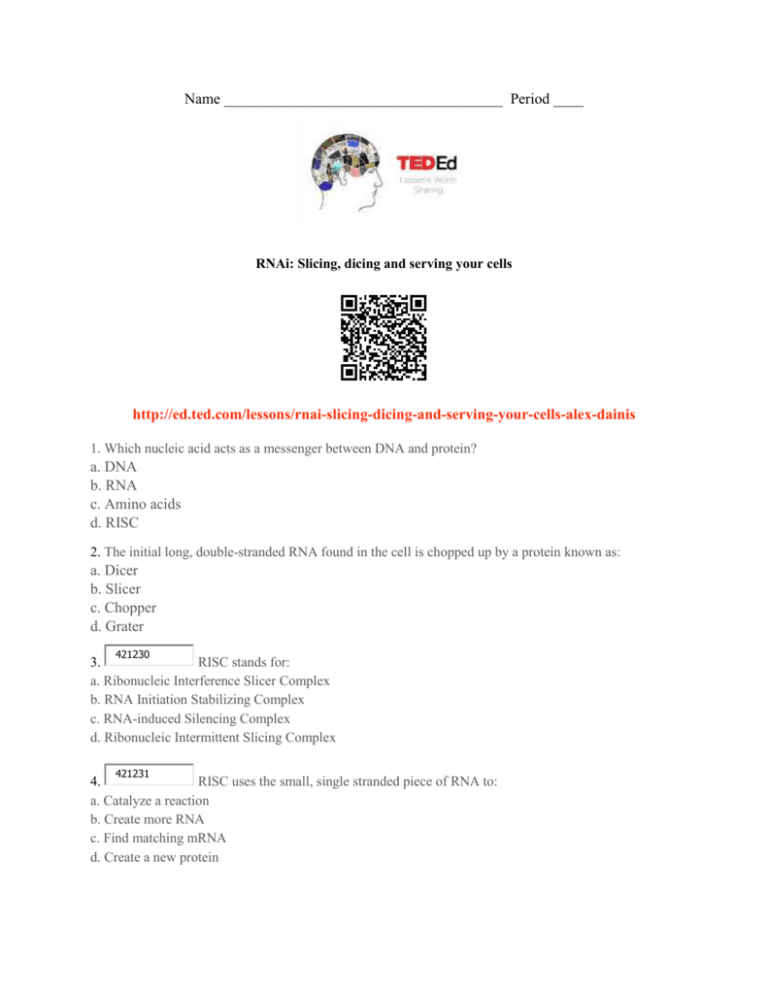
Name _____________________________________ Period ____ RNAi: Slicing, dicing and serving your cells http://ed.ted.com/lessons/rnai-slicing-dicing-and-serving-your-cells-alex-dainis 1. Which nucleic acid acts as a messenger between DNA and protein? a. DNA b. RNA c. Amino acids d. RISC 2. The initial long, double-stranded RNA found in the cell is chopped up by a protein known as: a. Dicer b. Slicer c. Chopper d. Grater 421230 3. RISC stands for: a. Ribonucleic Interference Slicer Complex b. RNA Initiation Stabilizing Complex c. RNA-induced Silencing Complex d. Ribonucleic Intermittent Slicing Complex 421231 4. RISC uses the small, single stranded piece of RNA to: a. Catalyze a reaction b. Create more RNA c. Find matching mRNA d. Create a new protein 421232 5. RNAi could be used to: a. Change someone’s hair color b. Increase the amount of RNA produced by a cell c. Create new proteins d. Knock down attacking viral RNA 6. RNAi works because it interferes with the second step of the Central Dogma, the translation of RNA into protein. Explain the process of how DNA is made into protein using an RNA intermediate. 7. Scientists hope to use RNAi to help treat conditions caused by single gene mutations. These mutations would create incorrect RNA, which would in turn create malformed proteins. Explain how introducing long, double-stranded RNA that matches the gene into a cell could help knock down the effects of these malformed proteins. 8. Scientists discovered RNAi in petunias when they introduced an additional gene for purple pigment and instead of flowers with more purple pigment, got flowers with white patches. Explain how RNAi creates these white flowers instead of purple.
